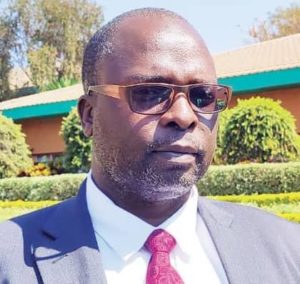Lilongwe, Malawi – It’s official: Malawi is not buying the IMF’s broken economic record anymore.
In a rare but thunderously bold dismissal, Reserve Bank of Malawi (RBM) Governor MacDonald Mafuta Mwale and respected legal heavyweight Khumbo Bonzoe Soko have roundly rejected the latest “copy-and-paste” prescription from the International Monetary Fund — another round of currency devaluation.
“We have told them very clearly: we have devalued the kwacha before. Not once, not twice, and yet no magic happened — just more pain for ordinary Malawians,” said Governor Mafuta Mwale with the kind of weary patience one reserves for a guest who just won’t leave.
In a dramatic and pointed rebuke of IMF’s recent Article IV consultation findings, the central bank head made it clear Malawi is not interested in sinking the economy further just to please paper-pushing technocrats with no skin in the game.
“We’re now focusing on real solutions: boosting exports, empowering local production, attracting genuine investment and building our own forex capacity. That’s how real economies are fixed — not by turning the country into an economic guinea pig,” he added.
But it was Khumbo Soko, never one to mince words, who turned up the volume on Malawi’s growing disillusionment with the Bretton Woods brigade.
“Honestly, the IMF lot seem intellectually bored. Do they even try to think anymore?” he asked sarcastically. “Their solution to every economic hiccup is devaluation. I mean, is this a think tank or a broken jukebox?”
Soko, whose LLM credentials clearly haven’t dulled his sense of irony, added that Malawi has been through more devaluations than policy memos — and it hasn’t worked.
“I look forward to the day when we never have to take lectures from these second-rate economists whose ‘advice’ has caused nothing but misery. Maybe it’s time to dust off my dissertation and apply for a PhD… on economic stupidity,” he quipped.
The IMF, in its recently released consultation paper, claimed that unifying Malawi’s official and parallel exchange rates would “restore macroeconomic stability” and “encourage investment.” What they conveniently omitted, however, is how the last devaluation — a brutal 44% slash — ignited rampant inflation, crushed businesses, and left households scrambling for basic essentials like fuel and medicine.
Even Economics Association of Malawi (ECAMA) president Bertha Bangara Chikadza joined the resistance, diplomatically calling the IMF’s proposal “not feasible” and “economically reckless.”
“We’re still reeling from the last devaluation. Inflation is up, businesses are down, and households are suffocating. Another rate adjustment? That’s not a solution. That’s economic arson,” she warned.
President Lazarus Chakwera, too, hasn’t hidden his frustration. Speaking at the 2025 Malawi International Trade Fair, he revealed that the IMF had tied continued financial support to conditions like raising electricity and fuel prices and cutting investment in empowerment programs like NEEF.
“I told them: stop it. You say the money is to help our businesses? Then why kill them by hiking electricity? Our salons, welding shops, barbers — they’ll all be wiped out,” Chakwera said defiantly.
And so, while IMF suits from Washington sip lattes and theorize about “market-clearing rates,” Malawi’s leadership has sent a clear message: this country has graduated from textbook economics — it’s time for practical, people-first policy.
And if the IMF can’t keep up? Well, there’s always Google Translate to help them read the room.













